Lifestyle
‘ACCEPT THE DECISION’ – Imane Khelif Lashes Out Over Lifetime Ban and $25 Million Loss as WBO Declares Her a Man and Strips All Her Medals.Linh
In an unprecedented and controversial move, the World Boxing Organization (WBO) has declared Algerian boxer Imane Khelif to be a man, sparking an intense public debate and sending shockwaves through the world of sports. Khelif, a rising star in the women’s boxing scene, has been handed a lifetime ban and forced to forfeit his hard-earned medals, as well as face the staggering financial loss of $25 million. The decision has not only shaken the boxing community but also fueled a broader conversation about gender identity, fairness in sports, and the future of gender-based competitions.
The Rise of Imane Khelif
Imane Khelif was once hailed as a trailblazing athlete in women’s Boxing. Known for his tenacity, skill, and remarkable technique, Khelif quickly rose to prominence, capturing multiple titles and garnering international attention. His success was seen as an inspiration, particularly in Algeria and across the Arab world, where Khelif’s achievements were celebrated as a symbol of determination and breaking barriers for women in Sports.
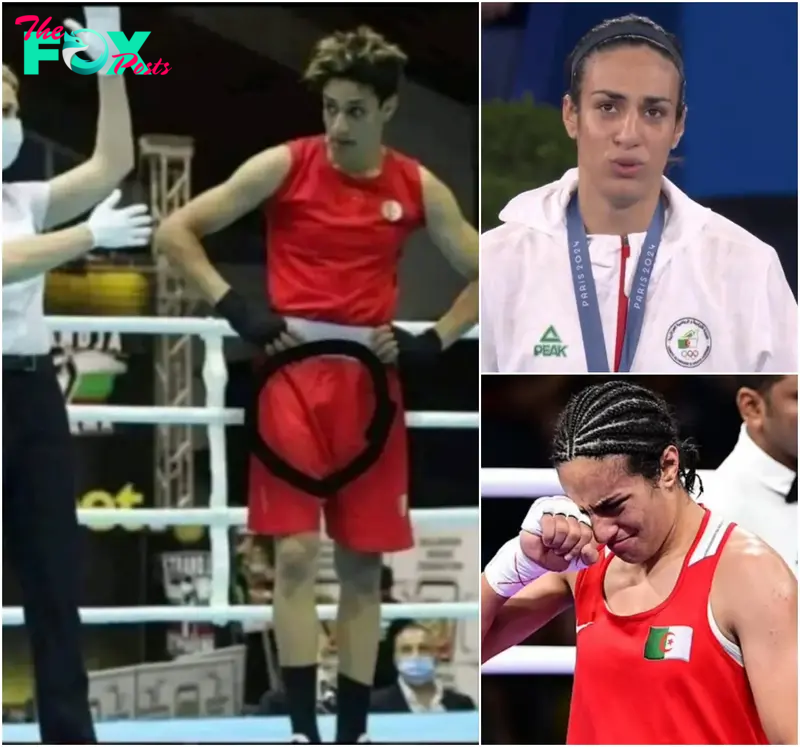
Khelif’s career, however, took an unexpected and dramatic turn when the WBO made the announcement that he had been disqualified from all women’s comPetitions and would face a lifetime ban from the sport. According to the WBO, Khelif had failed to meet the organization’s gender eligibility requirements, which led to the decision to strip him of all medals and titles, and to impose the hefty financial penalty of $25 million.
The WBO’s Controversial Decision
The WBO’s decision to classify Khelif as a man and consequently ban him from women’s Boxing has been met with outrage, not only from Khelif himself but from fans, activists, and athletes around the world. In a public statement, the organization claimed that Khelif’s biological characteristics did not align with their gender policies, prompting the lifetime ban.
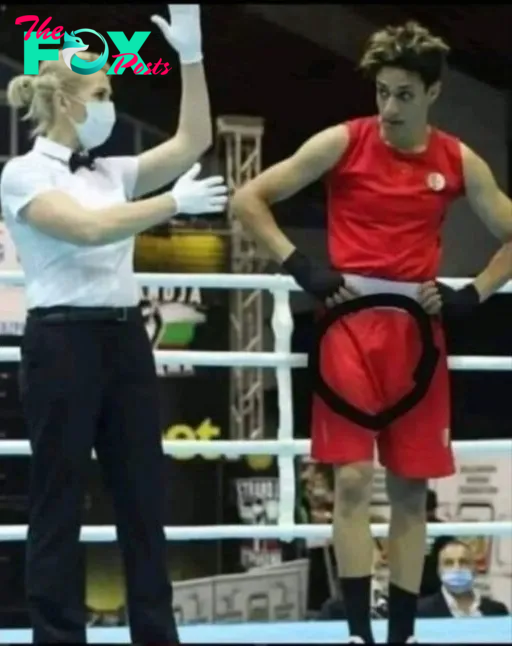
However, this ruling has been widely condemned as discriminatory and archaic by many, who argue that it disregards the complexities of gender identity. In recent years, discussions about transgender and non-binary athletes have sparked intense debates over the fairness of sports categorization based solely on biological sex. Critics of the WBO’s decision suggest that the governing body failed to take into account the nuanced and evolving understanding of gender, opting instead for a black-and-white view that has alienated Khelif and left a stain on the sport’s reputation.
Khelif Speaks Out
Imane Khelif has fiercely contested the WBO’s decision, expressing his outrage and disappointment in a series of emotional statements. “I am not a man,” Khelif declared in a recent interview. “This decision is not only wrong, but it’s an insult to everything I have worked for. I have dedicated my entire life to this sport, and now it’s all been taken away based on something that isn’t true.”
Khelif, who has always identified as a woman, emphasized that he had undergone the required gender testing at various points throughout his career and had been cleared to comPete in women’s events. The sudden reversal by the WBO, he argues, feels like a targeted attack on his identity and accomplishments.
In addition to the lifetime ban and the removal of all his accolades, Khelif has also been ordered to return prize money and endorsements, amounting to a devastating $25 million loss. For an athlete who has poured heart and soul into the sport, this financial burden compounds the emotional toll of the ruling. “I’ve lost everything—my career, my medals, my reputation,” Khelif said. “And now, they expect me to pay for their decision? It’s unjust.”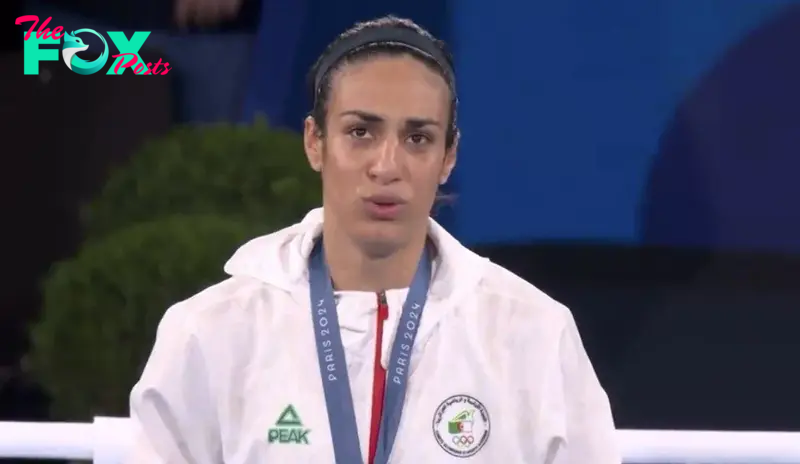
Global Reactions
The WBO’s ruling has sparked a wave of reactions across the globe. Advocacy groups for LGBTQ+ rights and gender equality have rallied behind Khelif, condemning the decision as an example of institutionalized discrimination. Many argue that sports organizations need to adapt to the changing landscape of gender identity and create more inclusive policies that reflect modern understandings of gender.
“Imane Khelif is being punished for being who he is,” said a spokesperson from an international LGBTQ+ rights organization. “This ruling is based on outdated and harmful stereotypes that reinforce rigid gender binaries. The sports world needs to evolve, and decisions like these only set us back.”
Athletes from various sports have also voiced their support for Khelif, with some calling for a review of the WBO’s policies. The case has ignited a broader conversation about the fairness of gender testing in sports, with many calling for more transparency and sensitivity in handling such cases. While some have defended the WBO’s actions as necessary to preserve fairness in women’s sports, others argue that the current approach does more harm than good, particularly for athletes whose gender identity doesn’t fit neatly into traditional categories.
The Legal Battle Ahead
Khelif has vowed to fight the WBO’s decision in court, claiming that the organization’s ruling violates his human rights and constitutes discrimination. Legal experts anticipate that the case could set a precedent for how sports organizations handle gender identity issues in the future. If successful, Khelif’s challenge could force the WBO and other governing bodies to rethink their policies on gender eligibility and to adopt more inclusive approaches.
While the legal battle is likely to be a long and arduous one, Khelif remains determined. “I won’t stop fighting for my truth,” he said. “This is bigger than just me. It’s about fairness, dignity, and the right to compete as who you truly are.”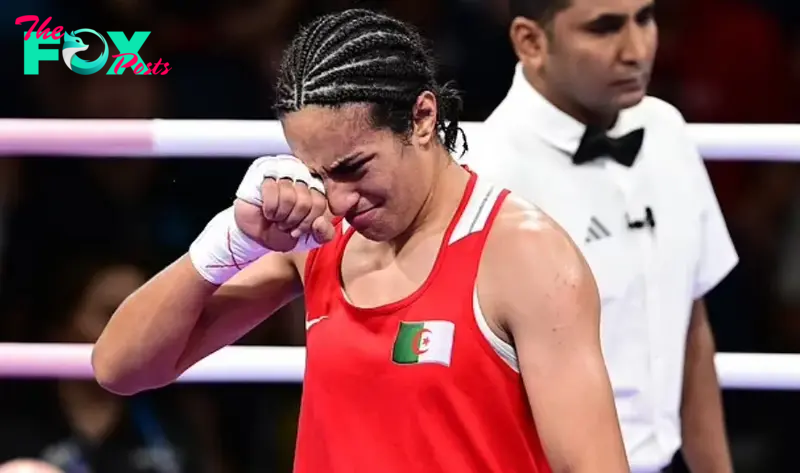
The Future of Gender in Sports
The case of Imane Khelif highlights the growing tension between traditional sports regulations and the evolving understanding of gender identity. As more athletes who identify as transgender or non-binary seek to compete in professional sports, governing bodies are being forced to confront difficult questions about fairness, inclusion, and the integrity of competition.
Many experts argue that the future of sports will need to involve more nuanced policies that move beyond binary categorizations. Solutions such as open categories or revised gender testing methods have been proposed as ways to ensure fairness while respecting athletes’ identities. However, finding a balance between inclusivity and competitive fairness remains a significant challenge.
Conclusion
Imane Khelif’s lifetime ban and $25 million penalty mark a turning point in the ongoing debate over gender in Sports. As the legal and public battles unfold, the world will be watching closely to see how the case is resolved and what impact it may have on the future of gender policies in professional Sports. For Khelif, the fight is far from over. Despite the enormous personal and financial losses, Khelif remains resolute in his quest for justice and acceptance, determined to make his voice heard in a system that, for now, seems unwilling to listen.
-

 Lifestyle50m ago
Lifestyle50m agoWATCH: Vivek Oberoi gifts expensive car to his father | The Express Tribune
-

 Lifestyle50m ago
Lifestyle50m agoSohail Ahmed praises Diljit Dosanjh’s admiration for Nusrat Fateh Ali Khan | The Express Tribune
-

 Lifestyle6h ago
Lifestyle6h agoHow Kajol's unibrow helped a young Sonam | The Express Tribune
-

 Lifestyle6h ago
Lifestyle6h agoIt's not political, it's people's lives: Jennifer Lawrence | The Express Tribune
-

 Lifestyle11h ago
Lifestyle11h agoMerub Ali's minimalist leather moment | The Express Tribune
-

 Lifestyle11h ago
Lifestyle11h agoShaan defends shirtless photos | The Express Tribune
-
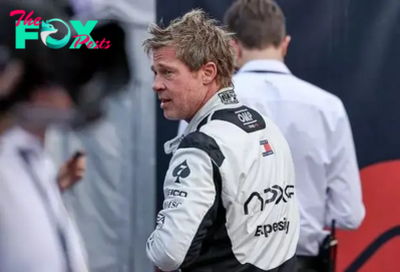
 Lifestyle16h ago
Lifestyle16h agoBrad Pitt filming F1 movie scenes 'faints' on track at Las Vegas Grand Prix | The Express Tribune
-

 Lifestyle16h ago
Lifestyle16h agoWhy did engagement between Didar and Abdul Razzaq end? | The Express Tribune






















